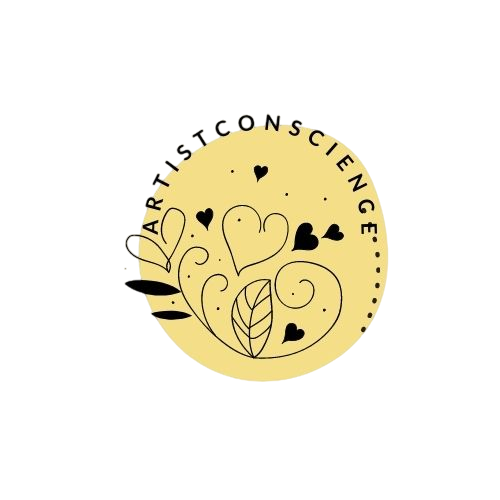Being Your Own Life Coach

Life coaching has become increasingly popular, but did you know you can achieve your goals and live your best life without hiring a professional? With the right mindset and tools, you can become your own life coach and take control of your destiny.
Before becoming my own life coach, I struggled to hold myself accountable and build momentum. Honestly, there are still days when I face challenges, but consistency and celebrating small wins have helped me tremendously.
I want to share some valuable tips that I have learned to help you on your journey to taking on this important (and fun!) role. With some guidance and self-awareness, you can become your own life coach and start taking steps toward a more fulfilling life.
Here are some tips on how to be your own life coach:
1. Set goals
Start by setting clear and specific goals. Ask yourself what you want to accomplish and why it’s essential. Write down objectives that are measurable, achievable, relevant, and time-bound (SMART goals). Break these down into smaller, manageable steps to stay motivated and focused.
Reflect on what you want to achieve in various aspects of your life, such as career, relationships, health, and personal growth. Write these goals down and break them into smaller actionable steps with deadlines.


2. Create a plan
Develop a detailed action plan to achieve your goals. List the tasks and activities needed to reach your objectives. Regularly monitor your progress, make adjustments as necessary, and celebrate your successes along the way.
Create an action plan that includes a list of tasks and activities to complete your goals. Track your achievements and celebrate milestones.
3. Hold yourself accountable
Accountability is key. As your own life coach, you must hold yourself accountable for your actions. Here are some strategies:
Here are some tips for self-accountability:
✴️ Setting Clear and Specific Goals: Being your own life coach starts with setting clear, specific, and measurable goals, as mentioned above. You need to know what you are working towards and why.
This process helps create a roadmap that guides your actions and provides a tangible framework for holding yourself accountable.
✴️ Cultivating Self-Awareness: Self-awareness is a cornerstone of personal growth and accountability. Deeply explore your strengths, weaknesses, values, and motivations. Regularly check in with yourself to reflect on your progress and assess your actions honestly.
Developing a keen self-awareness makes it easier to recognise when you’re veering off track or making choices misaligned with your goals.
✴️ Creating an Accountability System: To hold yourself accountable effectively, you need to establish a robust accountability system. This system can include various strategies, such as:
a) Tracking Progress: Keep a journal, create a habit tracker (there are tracking apps available), or use technology to monitor your progress regularly.
This visual representation of your efforts will motivate you to stay on course and celebrate milestones along the way. A vision board to visualise what you want to achieve helps with momentum.
b) Find an Accountability Partner: Share your goals and aspirations with a trusted friend, family member, or mentor who can hold you accountable or an accountability group. I have joined an accountability group on Whatups. Regular check-ins and discussions about your progress can provide valuable insights, support, and encouragement.
c) Self-Reflection and Evaluation: Set aside dedicated time to reflect on your actions, decisions, and progress. Ask yourself challenging questions and honestly evaluate if you are living up to your own expectations.
Use this self-reflection as an opportunity to course-correct and make adjustments as needed.
Do you like this post? Bookmark this post for later on Pinterest!

4. Practice self-awareness
Being your own life coach requires a deep understanding of yourself and your aspirations.
I encourage you to reflect on your thoughts, feelings, and actions and identify any patterns or behaviours holding you back.
Here are some practices of self-awareness that can assist you.
✴️ Embracing Mindfulness: Mindfulness is the gateway to self-awareness. By intentionally focusing on the present moment, you can observe your thoughts, emotions, and physical sensations without judgment.
Practising mindfulness techniques, such as meditation or mindful breathing, allows you to develop a deeper connection with yourself, uncover subconscious patterns, and gain clarity about your desires, values, and motivations.
✴️ Reflecting on Past Experiences: Reflecting on past experiences is a powerful tool for self-awareness.
I encourage you to examine both successes and failures, considering your choices, lessons learned, and their impact on your personal growth.
By analysing your past, you can identify recurring patterns, strengths, areas for improvement, and any limiting beliefs that might be holding you back from reaching your full potential.
✴️ Exploring your Values and Beliefs: Understanding your core values and beliefs is essential for aligning your actions and decisions with your authentic self.
Reflect on what truly matters to you and what you stand for. Ask yourself
- Are there any beliefs that no longer serve you?
- Are your actions in line with your values?
By clarifying your values and challenging limiting beliefs, you can make choices that align with your true aspirations and create a more purposeful life.
✴️ Keeping a Journal: Maintaining a journal can be a valuable practice for deepening self-awareness. Set aside time to write about your thoughts, feelings, and experiences. Journaling allows you to process your emotions, gain insights into your thought patterns, and track your progress over time. It serves as a personal reflection tool that aids in self-discovery and fosters self-compassion.
✴️ Practicing Self-Reflection: Integrate self-reflection into your daily routine. Set aside dedicated time to evaluate your actions, decisions, and behaviours. Ask yourself meaningful questions, such as “Am I living in alignment with my values?” or “What can I learn from this situation?” Self-reflection allows self-correction, personal growth, and intentional choices supporting your aspirations and goals.
5. Seek out resources
Just because you’re your own life coach doesn’t mean you have to do it alone.
I encourage you to seek out resources to help you achieve your goals. Fortunately, abundant resources are available in today’s digital age to help you become your own life coach.
Here, I’ve listed various valuable resources to support and empower you as you navigate your personal development journey.
Books: Books have long been a source of wisdom and guidance. There are numerous self-help and personal development books written by experts in the field that can equip you with the knowledge and tools to become your own life coach. Some highly recommended titles include:
- “The Life-Changing Magic of Tidying Up” by Marie Kondo: This book focuses on decluttering your physical and mental spaces, promoting a sense of clarity and purpose.
- “The 7 Habits of Highly Effective People” by Stephen R. Covey: Covey’s timeless classic offers practical advice for personal effectiveness, emphasising principles such as proactivity, prioritisation, and continuous growth.
- “Atomic Habits” by James Clear: Clear explores the power of small habits and how they can compound over time, leading to significant personal transformation.
Personal Development Podcasts: Podcasts have become popular for self-improvement, offering valuable insights and inspiration. There are numerous podcasts dedicated to personal growth, providing practical tips, interviews with experts, and thought-provoking discussions.
Some noteworthy podcasts I personally listen to include:
- “The Tony Robbins Podcast,”
- “The Life Coach School Podcast” by Brooke Castillo,
- “The School of Greatness” hosted by Lewis Howes.
These podcasts are readily accessible on Spotify, Apple, and Google Podcasts.
Online Communities and Forums: Connecting with like-minded individuals on the same personal growth journey can provide invaluable support and motivation.
6. Celebrate your successes
Finally, it’s important to celebrate your successes along the way, no matter how big or small.
Take time to acknowledge and celebrate the progress you’ve made towards your goals, and use that momentum to keep pushing forward 🎉
I am rooting for you!
To Conclude
By following these tips, you can become your own life coach and start taking steps towards a more fulfilling life. Remember, being your own life coach is about taking ownership of your life and actively working towards the life you want. You can achieve your goals and live your best life with guidance and self-awareness.
Thanks so much for taking the time to read this blog 😊
Thank you for taking the time to read our blog! We appreciate your engagement and hope the information we shared has been valuable.
We’d love to hear your thoughts and experiences. Feel free to comment or contact us with any questions or suggestions.
Thank you once again for being a part of our blog. Stay inspired, stay motivated, and keep nurturing your well-being. 💛
Warm regards
About The Author
Sherie Mogane
Related Posts
Conquering Procrastination: Strategies for Taking Action
We all have our own personal battles to fight. But, in this blog, I would …
June 9, 2019© 2020 Artistconscience. All rights reserved



